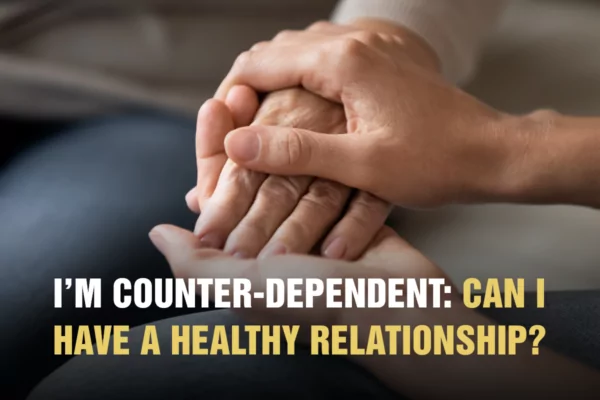What Are Attachment Styles?
Attachment theory was first developed by John Bowlby in the 1950s, and developed by others such as Mary Ainsworth in the 1970s. Attachment theory is the theory of how we are bonded to our primary caregivers in infancy, with Bowlby describing attachment as “lasting psychological connectedness being human beings.”
There are three main attachment styles that were identified; secure attachment, insecure avoidant attachment, and insecure anxious attachment. Our attachment style influences how we react to our needs and how we go about getting our needs met, both in infancy and in adulthood.
Secure Attachment
In infancy, securely attached children will use their caregiver as a secure base from which to explore their surroundings, knowing that they can go back to their caregiver for comfort or reassurance whenever they want. If their caregiver leaves the room, they are likely to be distressed but calm down quickly once the caregiver returns.
Insecure Anxious Attachment
Those who are anxiously attached in childhood will also be distressed when their caregiver leaves the room but once the caregiver returns they might move closer to them but they will also resist contact. These children are more tearful than others and also explore less than other children.
Insecure Avoidant Attachment
Finally, those who are avoidantly attached in childhood shows little to no interest when the caregiver leaves the room or returns. If avoidant children do get upset, they are able to be comforted by the caregiver but are comforted equally well by a stranger.
According to research by Shaver and Hazen (1987), about 60% of us enjoy secure attachment styles, 20% are anxiously attached, and another 20% are avoidantly attached.
Disorganised Attachment
There is also a fourth attachment style, disorganised attachment, which is characterised by a lack of clear attachment behaviour. Typically there is a mixture of avoidant and anxious attachment behaviours and is said to be the result of parents who provide both fear and reassurance to a child – because the child feels both fear and comfort from their caregiver confusion ensues.
How Are They Formed?
Attachment styles are developed and formed in early infancy and childhood and are based on interactions between the infant and their main caregiver(s).
Children whose parents are consistently responsive to their child’s needs tend to be more securely attached.
Those whose parents are consistently unresponsive to their child’s needs tend to be avoidantly attached – because what is the point of attempting to interact with a parent if they aren’t attending to my needs anyway?
Those whose parents are sometimes responsive and sometimes unresponsive tend to develop anxious attachments. These children will tend to do whatever they can to get the attention of their caregiver (including throwing tantrums or being clingy), and when they get their caregiver’s attention, they tend to be angry and therefore reject the caregiver’s attention.
How Do They Impact Adult Relationships?
It is important to note that our attachment styles can change throughout our lives. Someone who grows up with an avoidant or anxious attachment style might enter therapy or experience a long-term healthy relationship and slowly change the way that they relate to others. Equally, someone who is securely attached in infancy might experience a traumatic event or relationship which changes their way of relating to the world and those around them.
However, recognising our attachment style can help us to understand our strengths and weaknesses in our adult relationships. Those who are securely attached as infants, and who hold onto this attachment style in adulthood, are more self-possessed and more able to easily interact with others. There is a sense that those who are securely attached know what to expect from others in healthy relationships, know how to express their needs and get their needs met.
Those whose attachment styles are avoidant or anxious are likely to pick partners who fit with their own maladaptive pattern of relating and confirm their maladaptive view of relationships.
Someone whose attachment style is avoidant is likely to keep their emotions to themselves, pretend everything is fine, and express that they don’t care if their partner loves them. Therefore, they will likely seek out a partner who is constantly unresponsive to their needs, just as their caregivers were.
Someone whose attachment style is anxious is likely to depend on their partner for emotional support whilst wondering if their partner even cares about them. They also often don’t feel comforted by their partner when they are upset. Therefore, they are likely to seek a partner who attempts to respond to their needs but is inconsistently successful at doing so, much like their caregiver who was inconsistently responsive.
Those who enjoy a secure attachment style are likely to seek out relationships in which they can depend on their partners to be there for them when they are needed, in which they know that their partner can successfully comfort them when they are distressed, and in which the act of becoming emotionally close is enjoyable to both parties.
If you’d like to process your feelings about relationships or dating with an experienced therapist – and perhaps explore your relationship patterns – then get in touch. We have sessions available seven days a week at our Clapham and Tooting centres. Contact our team by calling 020 8673 4545 or emailing [email protected].








